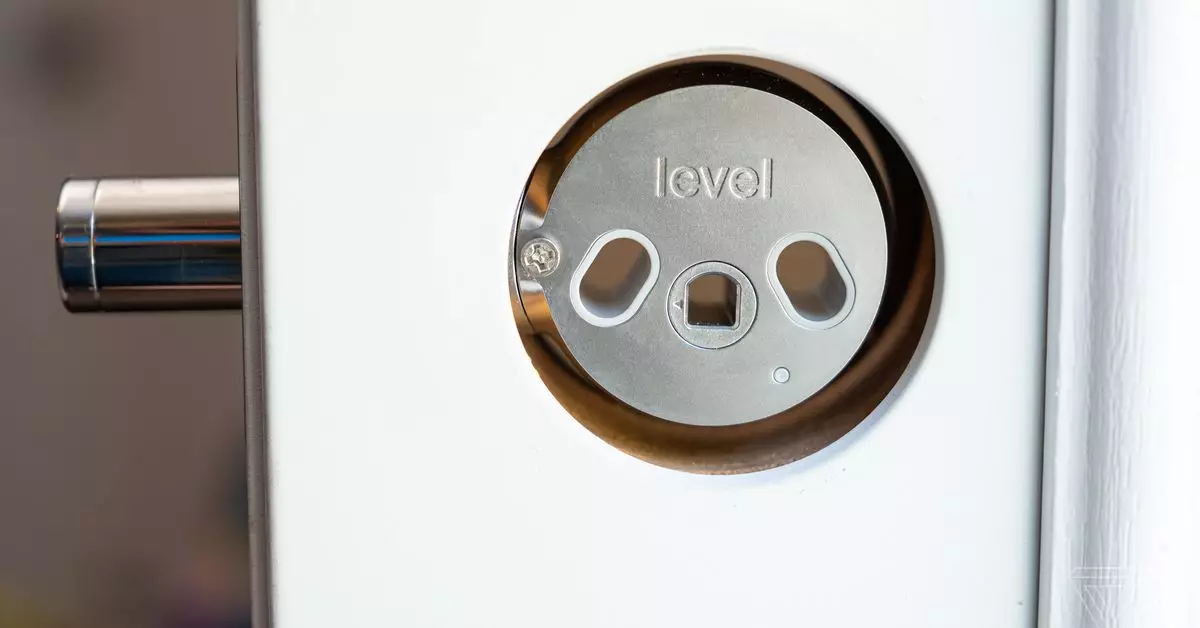The smart lock industry, while still budding, is increasingly becoming a focal point for innovation and competition among technology giants. Assa Abloy, a colossal entity in the lock manufacturing sector, is actively reshaping the landscape with recent acquisitions and strategic partnerships aimed at establishing a firm foothold in this digital domain. The Swedish company’s recent acquisition of Level Lock, a manufacturer recognized for its sleek and intuitive designs, marks a pivotal moment that could accelerate the transition from traditional locking mechanisms to advanced digital solutions.
As residential and commercial security priorities evolve, smart locks are rising in popularity. These devices not only offer enhanced security features but also the convenience of remote access and management. Historically, many potential users have shied away from adopting smart locks due to their often bulkier, unattractive designs that stand out compared to traditional locks. Level Lock’s approach, which integrates technology without compromising aesthetic appeal, is poised to dissolve this barrier. By enabling a seamless retrofit to existing deadbolts, Level Lock essentially democratizes smart lock technology, making it more accessible for the average consumer.
With Assa Abloy’s vast portfolio, which includes brands like Kwikset and Yale, this acquisition provides the company a crucial advantage. By incorporating Level’s innovative technology into their existing lines, Assa Abloy could produce locks that meld modern technology with classic design.
Assa Abloy has demonstrated adaptability in the face of changing market demands. The company’s strategy of integrating innovative technologies from acquired startups shows a commitment to staying at the forefront of the industry. In 2014, when Assa Abloy purchased August Home, the company enhanced its Yale brand with new capabilities aimed at improving user experience.
While Assa Abloy had to divest from certain brands under scrutiny from the Department of Justice (DOJ), it has reaffirmed its intent to navigate regulatory landscapes while maintaining a robust competition portfolio. The balance between compliance and growth is delicate; however, Assa Abloy appears to have threaded this needle effectively with the acquisition of Level, a company with a comparatively smaller market footprint that poses little regulatory friction.
Level Lock’s technology is significant due to its compactness and the integration of smart features directly within the deadbolt’s core architecture, which is a departure from the bulky designs associated with many smart locks. This efficient use of space not only enhances security but also ensures that these locks can fit seamlessly into a variety of door styles and designs.
The future of smart locks is increasingly becoming intertwined with universal technology standards. Assa Abloy has aligned its development with Matter, a technology protocol fostered by leading industry players including Apple and Google, designed to create compatibility among smart home devices. This alignment points to a future where consumers could unlock their doors with their smartphones, smartwatches, or other devices, thereby offering greater flexibility than ever before.
Assa Abloy realizes that the market craves a unified experience—an approach represented by the developing Aliro access control standard. This initiative aims to standardize communication between locks and keyless entry devices, heralding a new era where unlocking doors may be as simple as a tap on a mobile device.
Looking ahead, consumer expectations will inevitably shape the trajectory of smart lock development. While auto-unlocking and biometrics like fingerprint access are appealing features, it appears that the primary consumer desire focuses on a digital key that is not only secure but broadly compatible with existing technology. As Assa Abloy positions itself as a leader in the smart lock arena, the fusion of user-centric design, technological advancement, and interoperability will be crucial for long-term success.
Despite the promising outlook, challenges remain, including the need for continuous innovation and adaptation to regulatory changes. Assa Abloy must not only enhance its product offerings but also remain vigilant in monitoring the competitive landscape.
Assa Abloy’s acquisition of Level Lock is more than just a business maneuver; it signifies a strategic push towards digitizing security solutions for everyday consumers. By merging aesthetics with cutting-edge technology, Assa Abloy is set to redefine accessibility in the realm of smart locks. As the industry evolves with standards like Matter and Aliro on the horizon, the clear trajectory leans towards a future where security and convenience go hand-in-hand, potentially reshaping the way we perceive and interact with our locks and overall home security.

